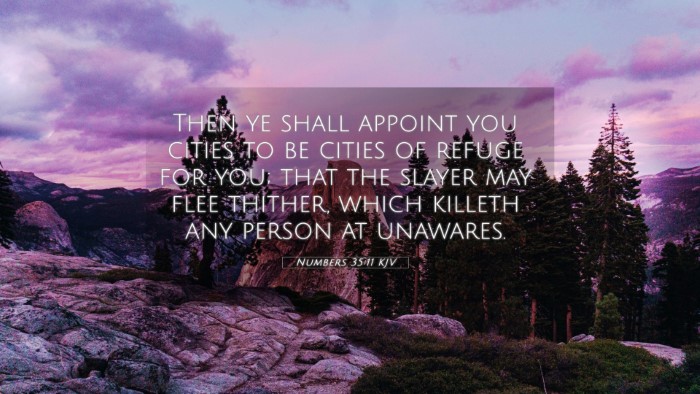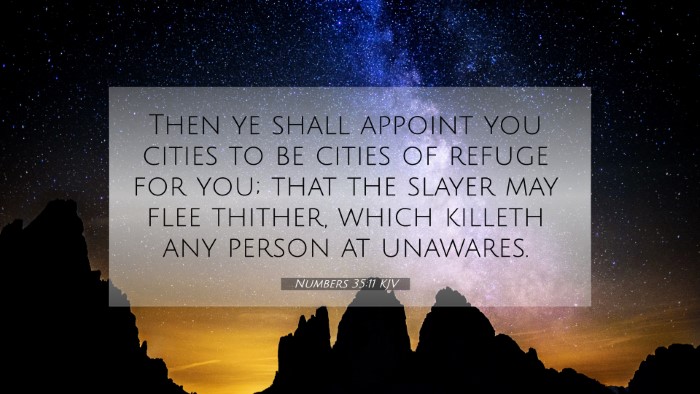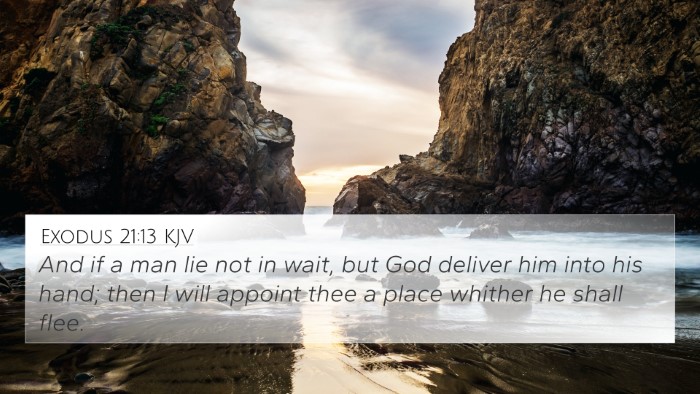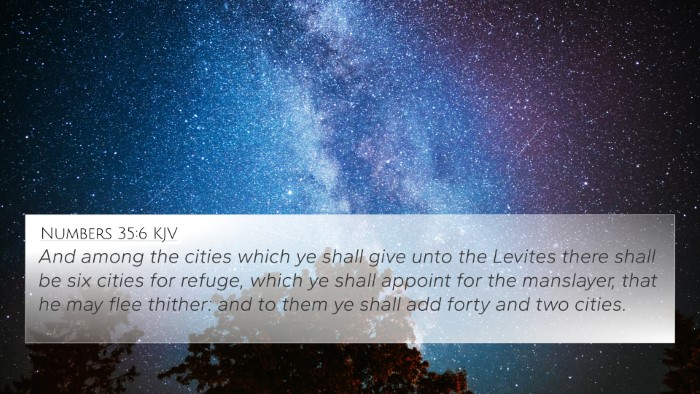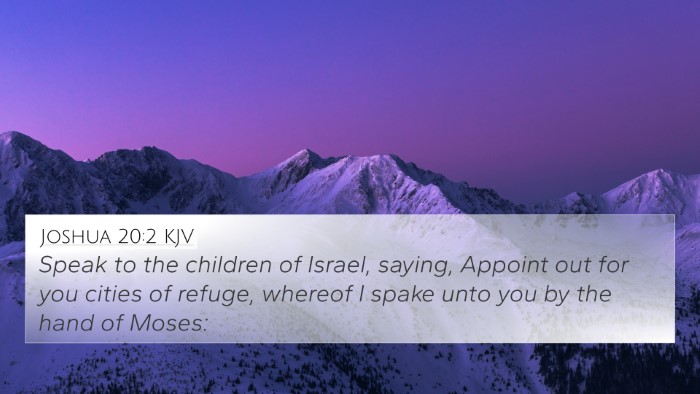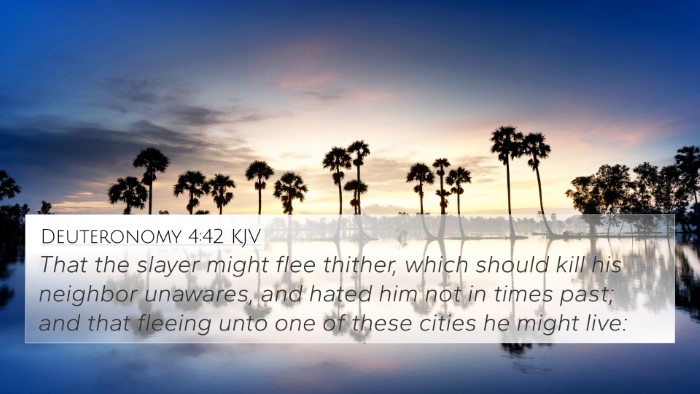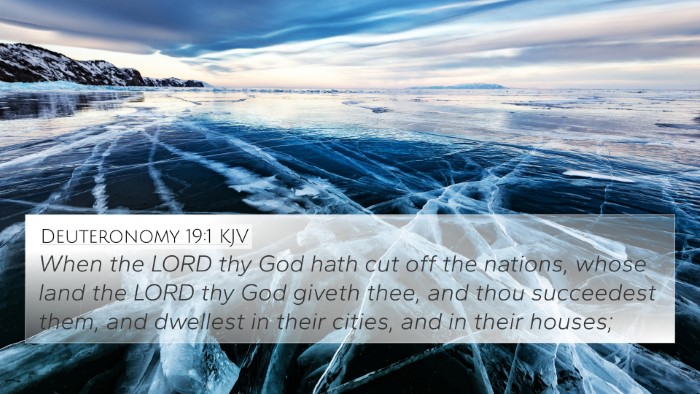Understanding Numbers 35:11
Verse: Numbers 35:11 states, "Then you shall appoint cities for yourselves to be cities of refuge, that the manslayer who kills any person unintentionally may flee there." This verse addresses the establishment of cities of refuge within ancient Israel, a critical provision for those guilty of unintentional homicide.
Summary of Insights
This verse reflects the compassionate nature of God's law, providing a means of protection for individuals who commit offenses without premeditation. The concept of refuge emphasizes the understanding of intent in justice, highlighting God's desire for mercy alongside accountability.
Key Themes in Numbers 35:11
- Judicial Mercy: The cities of refuge demonstrate God's mercy by allowing those who unintentionally cause harm a chance for safety and fair trial.
- Preservation of Life: The establishment of these cities underlines the sacredness of human life and the value placed on innocent lives.
- Intent vs. Action: This verse helps convey the need to assess the motives behind actions, signaling that unintentional acts deserve different treatment than intended wrongs.
Cross-References and Connections
Many scriptures relate to the concept of refuge and justice, creating thematic Bible verse connections:
- Exodus 21:12-14: Discusses the distinction between intentional and unintentional killing.
- Deuteronomy 19:1-13: Highlights the provision of cities of refuge and the laws surrounding them.
- Joshua 20:1-6: Provides the account of how the cities of refuge were established and their purpose.
- Hebrews 6:18: Presents the spiritual imagery of refuge as it pertains to Christians seeking safety in Christ.
- Psalm 91:2: Describes the Lord as a refuge and fortress, reinforcing the theme of seeking divine protection.
- Matthew 5:21-22: Jesus expands on the command against murder, teaching about anger and its implications.
- Romans 13:4: Discusses the role of government as a servant for justice, providing a basis for lawful conduct.
Detailed Analysis of Key Themes
Judicial Mercy and Its Importance
Commentary Insight: According to Matthew Henry, the provision of cities of refuge exemplifies the balance between justice and mercy, indicating that God's laws are not meant to be oppressive but rather protective. This is a theme prevalent throughout scripture, associating God with benevolence towards those who may falter through circumstances beyond their control.
The Role of Intent in Justice
Commentary Insight: Adam Clarke emphasizes the necessity of considering intent in administration of justice. Numbers 35:11 teaches that unintentional actions warrant a different approach—one that calls for understanding and forgiveness rather than punishment, which reflects God's character as a fair and just ruler.
Linking to New Testament Themes
Commentary Insight: Albert Barnes presents the connection between ancient law and modern application, showing how the principle of refuge translates into the New Testament teaching of Christ as our refuge. Believers can find solace in Him just as individuals in Israel sought safety in these appointed cities.
Practical Application and Bible Study
For those engaged in Bible cross-reference study, Numbers 35:11 serves as an excellent starting point. Here are some tools for effective cross-referencing:
- Bible Concordance: Use a concordance to locate related verses and expand your understanding.
- Bible Cross-reference Guide: Utilize guides to explore how themes interlink within the scriptures.
- Cross-reference Bible Study: Implement a structured study method that focuses on themes such as mercy and justice.
Conclusion
In summary, Numbers 35:11 is not just about cities of refuge, but it encapsulates fundamental biblical principles of mercy, justice, and the significance of intent in human actions. As we explore these connections between Bible verses, we deepen our understanding of God’s laws and His overarching theme of love and redemption throughout the scripture.

